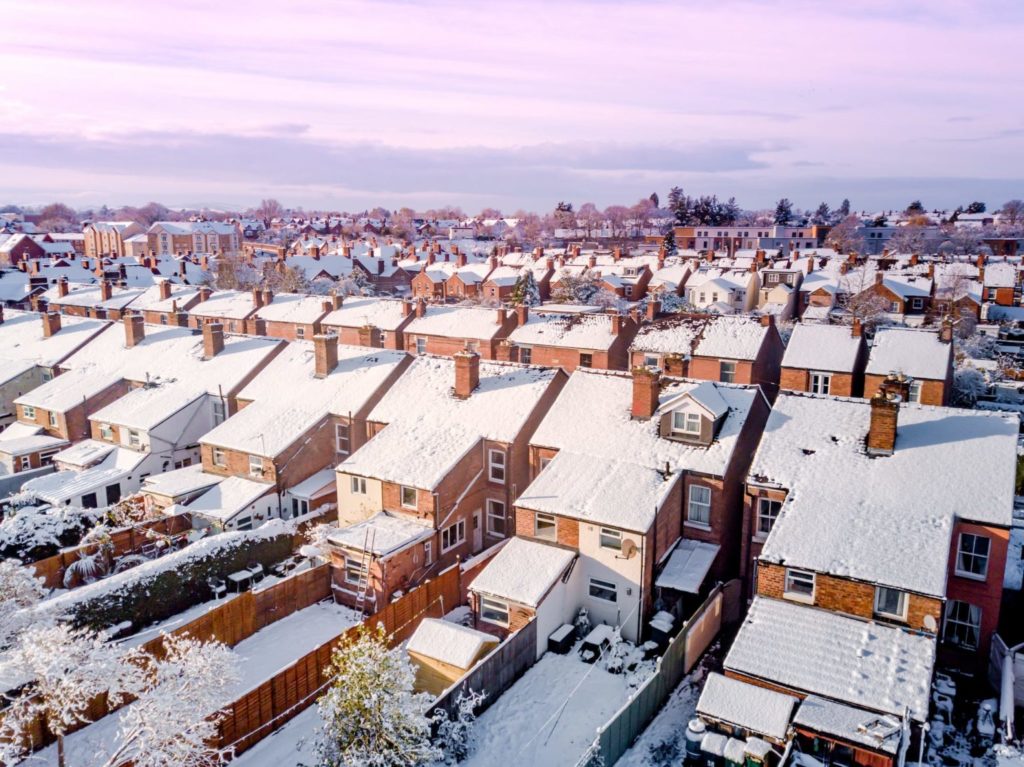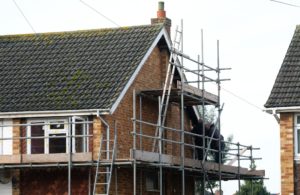January, February and early March have traditionally been the coldest months of the year and as the weather gets colder and we are all reaching for thermal underwear and heavy coats, it would be wrong and potentially expensive to forget that our homes also need to be wrapped up and ready for winter.
Check your home and contents insurance policy
Talk to your adviser today and make sure that you know what you are covered for and whether that cover is adequate for both the house and your valuables.
If you haven’t already, consider adding Home Emergency cover to your home insurance policy in preparation for any household emergencies.
Now, what about the house?
Check your roof
We had some pretty wet and windy weather during 2021 and it can’t have escaped your notice that the weather is becoming more unpredictable. While you can do a visual inspection from ground level, it is advisable to have a professional check your roof for any signs of damage such as missing tiles. At the same time have the chimney stack checked, particularly the flashings to ensure that water is not getting into the roof space.
Gutters
Gutters can become blocked and if they do, it is easy for trapped water to turn to ice in cold weather and create extra weight which can bring down gutters and in turn cause damage to external brickwork.
Time for a loft inspection
If the last time you were in the loft to put away your summer luggage or the Christmas decorations, take a little time to see if you can see any obvious signs of daylight in the roof, which would tell you that a roof inspection for tile damage is not just an option. Also take a look at your insulation in the roof space. Is it still fit for purpose? Heating bills can be significantly reduced with comprehensive roof space insulation.
Header tanks and pipework
The loft can also contain a water header tank depending on your heating system and will certainly have pipework. Insulation is a must, particularly if the water freezes and adds pressure on the tank itself, which could lead to leaks. Pipework needs to be adequately insulated. Check it anyway, it is easy to miss where insultation has been disturbed while moving items in the loft.
Boiler
As we enter the winter months, where our need for heat and hot water is going to be at its height, arrange for a boiler service as a priority.
Find your stopcock
Make sure you know where your stopcock is. In the event of a water leak, knowing where it is will mean less damage to your property and its contents. Also ensure that every family member is aware. Check that the stopcock is not stiff to turn. A little lubrication and turning it on and off will make sure that it is ready, should the worst happen.
Open fires and woodburners
We all love an open fire, but don’t forget that your chimney deserves a thorough clean, particularly if a fire has not been lit since earlier in the year. Soot and blockages can have a detrimental effect on the ventilation of your room, as well as running the risk of old soot being dislodged and making your living space unusable.
Smoke and carbon monoxide detectors
Check your detectors work. Whatever happens, if you can’t remember when you last changed the batteries – change them anyway.
While we are horrified when we see natural disasters occur around the world and the impact it can have on residents, widespread flooding and heavy storms are also becoming a fact of life for many here in the UK.
Power failures might only be temporary, and storms can last just a few hours, but it is best to be prepared.
Therefore, have a home emergency kit at hand – just in case.
Items could include:
- External mobile phone batteries
- Cash and debit card
- Torches
- Batteries
- Candles
- Matches
- Bottled water and canned food
- Blankets and waterproof clothing
- A list of local emergency numbers
- Your insurance details.
- A first aid kit
Winter holiday coming up?
Remember if your home is going to be empty for a reasonable period over the during the winter period, consider leaving the heating on to prevent your pipes from freezing and risking a burst. Similarly, if you are a landlord or second property owner with an unoccupied property, your insurance policy may also have specific terms which mean you need to maintain the property at a certain temperature or you may not be covered for escape of water claims.





